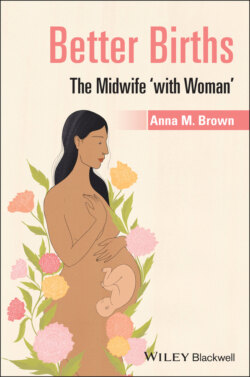Читать книгу Better Births - Anna Brown - Страница 32
The ‘Good’ Midwife
ОглавлениеThe concept of being a ‘good midwife’, as explored in systematic reviews by both Nicholls and Webb (2006) and Byrom and Downe (2010), identifies well‐developed communication skills, compassion, kindness, knowledge and midwifery skills as key elements. Attitudes and feelings together with midwifery knowledge create clinical competence to fulfil being ‘with woman’ (Carolan 2011). Halldorsdottir and Karlsdottir (2011) debate the primacy of the midwife's professionalism as central to the role of the ‘good midwife’ and identify essential key elements of professionalism, wisdom, competence, interprofessional competence and personal and professional self‐development as supporting attributes. A ‘good midwife’ is perceived by women to be able to provide them with information and is competent in fulfilling their needs whilst they feel listened to (Overgaard et al. 2014). In addition, women want to be individuals cared for by a midwife who provides ‘presence’ and makes them feel safe and cared for through their attitude and behaviour (Dahlberg et al. 2016).
One aspect which develops skills and knowledge essential to the ‘with woman’ competence is the reflective process: both internal as a reflective process and shared through discussion or story‐telling. Johns and Freshwater's (1998) interpretation of reflection, although now dated, is still relevant in that practitioners' experience informs embodied knowledge translated into clinical decisions to become intuitive knowledge. The relationship between a midwife's practice experiences and self‐development through reflection transforms perceptions and beliefs and ultimately results in skilled empathetic midwifery practice and competence. One paper from Australia explores the issues surrounding the situation when a woman declines recommended care (Jenkinson et al. 2017). The authors examine, from a feminist perspective, how the woman's and the midwife's autonomy may be upheld with specific guidance from clinicians providing care in this situation and suggest that models of care which support reflexive practice may enable midwives to advocate the right of refusal and maintain the ‘with woman’ concept empathetically.
Table 2.1 summarises the literature in relation to ‘with woman’ concept from an ethical perspective for both women and midwives. Rodgers' framework (1989) underpins the analysis in terms of antecedents, attributes and consequences.
